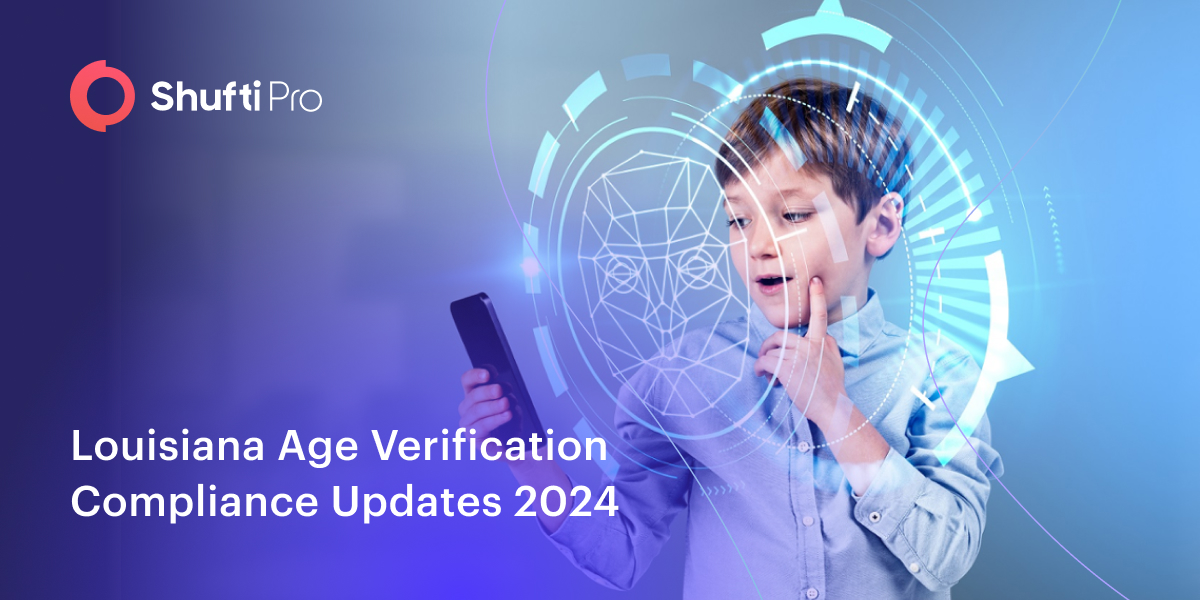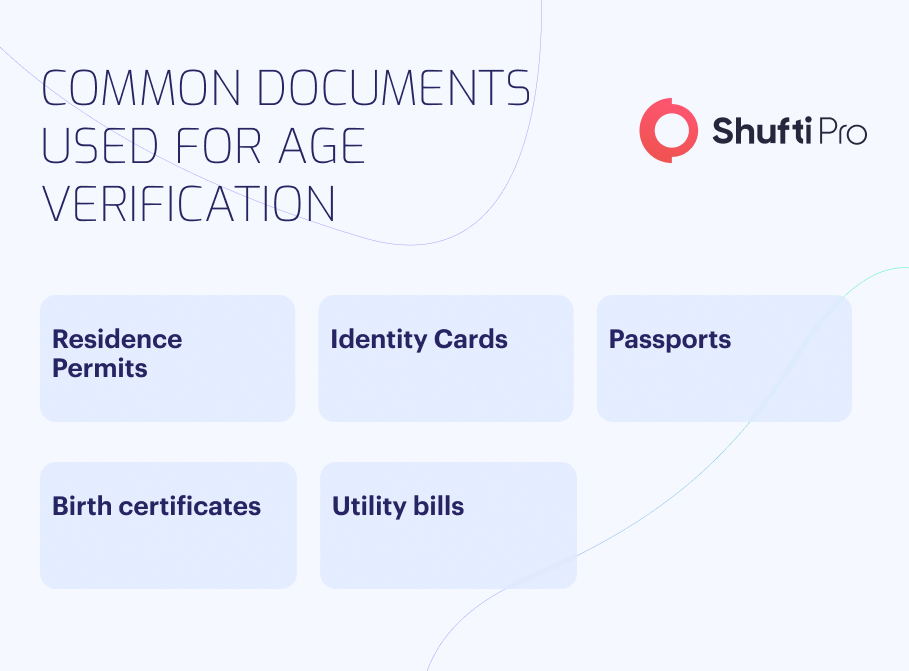Louisiana Age Verification Compliance Updates 2024

Age verification is crucial for online tasks like purchases and communication. The internet has advanced significantly due to global connectivity. However, a major chunk of the internet comprises young individuals, and cybercriminals specifically target these individuals because they are more vulnerable to cyberattacks than other adults.
Around 81% of U.S. adults support age verification requirements on social media companies that require parental consent for minors to create a social media account. About seven in ten people favor age verification before using social media sites, accounting for 71% of adults worldwide. Moreover, limiting how much time minors can spend on these platforms is also a significant concern that parents are now addressing.
The need for age verification is dire now, and businesses need a robust age verification system that conducts accurate age verifications to facilitate a safer web experience. Moreover, global regulatory authorities and watchdogs are also working actively to create laws to implement age verification. Exposure to adult content can have a negative impact on children’s minds and cause lifelong trauma, making it a significant concern for many.
Age Verification Laws in Louisiana | An Overview
The Louisiana Age Verification Law, also known as Act 570 of 2022, is a controversial piece of legislation that requires websites containing “a substantial portion of adult material” to implement age verification systems for users. However, in recent events, one of the biggest providers of adult content has refused to comply with it. Mindgeek, the site in question, chose to remove its services from highly regulated areas instead of complying with the law. It should be taken into account that the law demanded that these providers restrict access to underage individuals. This provider is not the only one. A significant chunk of providers in the adult content industry refused to comply with the demands of this law. This raises a substantial ethical and regulatory concern for regulators and everyday individuals.
These online platforms present a variety of content that is not suitable for underage kids. A robust age verification system is necessary in this regard because this sector needs to be regulated. Otherwise, its free access can impact young individuals emotionally and psychologically. For this purpose, Louisiana has started imposing penalties on online platforms that are non-compliant with age verification standards.
Over 25% of children aged 3 to 4 and 75% of children aged 5 to 7 in the UK spend more than nine hours per week online, which is why this sector needs to be regulated.

Key Takeaways from the Louisiana Age Verification Law
Louisiana has imposed strict regulations on online platforms to regulate the circulation of adult content providers in the state. Non-compliant entities will face consequences and be subjected to hefty fines and charges.
Here are some significant highlights of the law:
- In order to safeguard minors from inappropriate online content, Louisiana’s law has made age-verification mandatory.
- It allows the guardians of children to take legal action against platforms that fall short of implementing reasonable age verification measures.
- The law imposes fines of as much as $5,000 per day as well as an extra civil penalty of $10,000 for each violation for non-compliance.
- Privacy remains a central concern in discussions around implementing the law’s stipulations, despite major players’ resistance to it.
These are just some essential points of a relatively new law. Other than the Louisiana age verification law, multiple age verification regulations have also been implemented.
- The Safer Online Act by the UK government is an act that was implemented to protect kids from the harmful and age-inappropriate material found on different websites.
- The U.S. has the Children’s Online Privacy Protection Act (COPPA) and similar laws to monitor children’s online safety as per federal requirements.
How will the Louisiana Age Verification Law Work
In basic terms, the Louisiana state government has taken a big step towards protecting underage kids from harmful content on the internet. The current state of the internet is that of web surfing. People are constantly surfing the web aimlessly and can be redirected to different sites without any awareness. Kids are relatively more vulnerable to different internet calls to action (CTAs) than adults.
By making online platforms adhere to age verification requirements, the Louisiana age verification law is eliminating open access to age-restricted platforms online. If a platform fails to comply, regulatory scrutiny has consequences. For instance, La. Rev. Stat. § 14:91.14 indicates the presence of efficient age verification. As per this part of the law, displaying inappropriate content exposed to kids online is punishable by the Louisiana Statute. The Louisiana statute’s provisions are highly detailed, defining its scope as well as how it would be enforced. Most of the legislation is broad and covers a variety of platforms and relevant industries.
Moreover, web service providers are now not allowed to store the personally identifiable information (PII) of users after access to the content has been granted. These websites cannot even target individuals without recent or prior consent. By targeting devices without filters, underage individuals may be exposed to teasers, which is also illegal content and could result in penalties for the providers.
Age Verification Systems and Their Use
In order to effectively comply with the regulations imposed by the age verification law, companies need to adopt a robust age verification service that provides accuracy and compliance. There is a massive surge of users daily, making it hard for businesses to manually filter out the under-age individuals. For this purpose, they need an age verification system that complements their existing business processes and allows businesses to comply with the regulations effectively.
The advent of artificial intelligence (AI) and machine learning (ML) technologies has significantly aided this process, as they allow businesses to have automated verification processes along with independent reporting, which is all a business needs for an effective age verification process. As the identity verification system conducts accurate verification, the available metrics aid in the creation of accurate reports that can be used to satisfy regulatory requirements and the needs of the law.
As per the Louisiana age verification law, businesses that are in this industry can leverage age verification services to integrate robust age verification into their processes. This ultimately restricts underage access to inappropriate content and allows these businesses to remain compliant with laws such as the Louisiana age verification law.
Age Verification with Shufti
Shufti’s age verification service is a gateway to staying ahead in compliance while offering a seamless user experience. What makes our service stand out is the seamless API integration that requires zero human intervention.
Businesses are usually occupied with other processes, and verifying underage users manually can be very time-intensive. Many online platforms cannot afford to hire resources for specific verification purposes, as it is a burden on the company’s finances. Therefore, Shufti has catered to a low-code API integration for its customers that provides the most accurate verification results and helps companies comply with global regulations.
Restrict underage access with Shufti and safeguard your business from regulatory scrutiny.

 Explore Now
Explore Now













